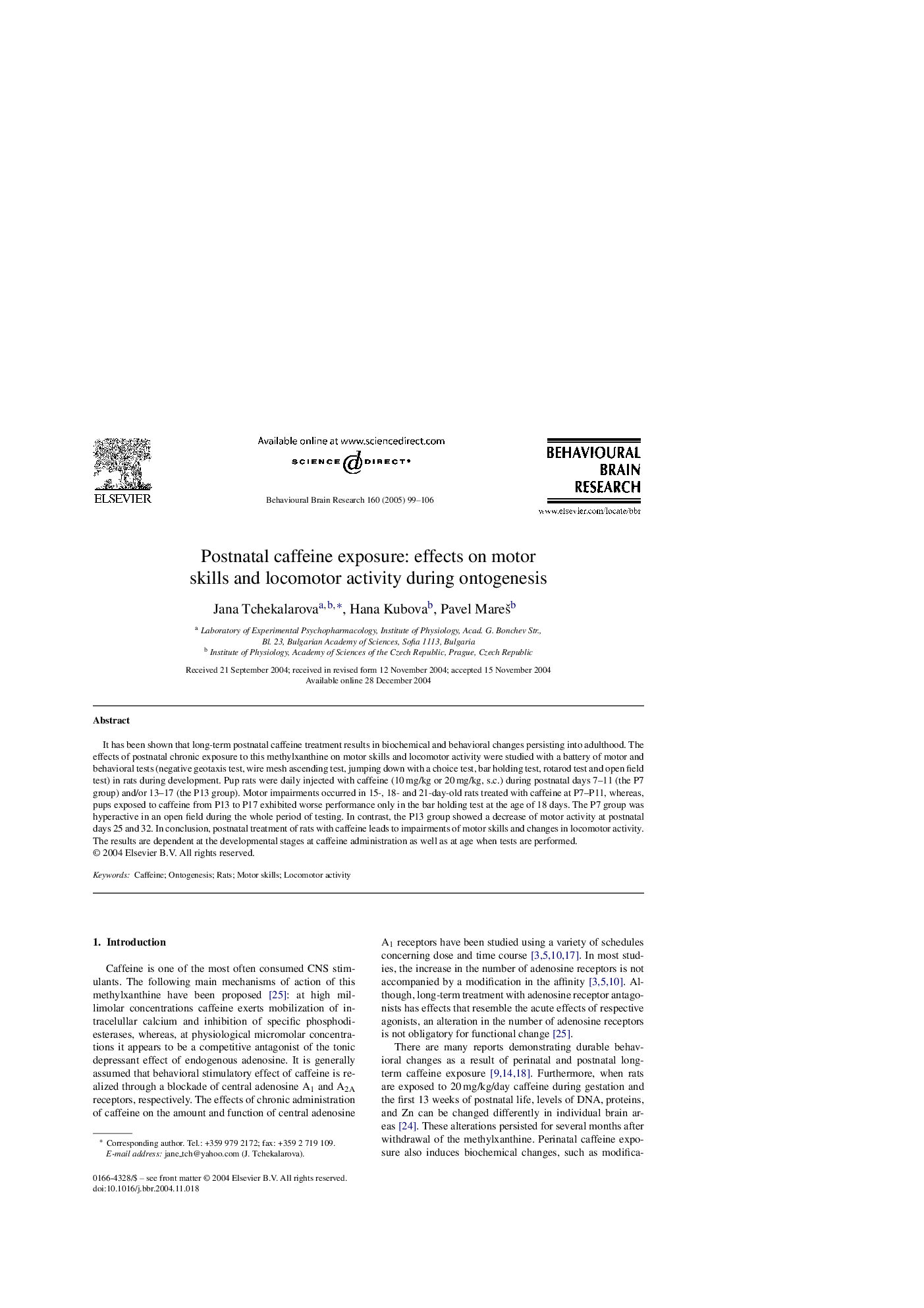| Article ID | Journal | Published Year | Pages | File Type |
|---|---|---|---|---|
| 9406587 | Behavioural Brain Research | 2005 | 8 Pages |
Abstract
It has been shown that long-term postnatal caffeine treatment results in biochemical and behavioral changes persisting into adulthood. The effects of postnatal chronic exposure to this methylxanthine on motor skills and locomotor activity were studied with a battery of motor and behavioral tests (negative geotaxis test, wire mesh ascending test, jumping down with a choice test, bar holding test, rotarod test and open field test) in rats during development. Pup rats were daily injected with caffeine (10Â mg/kg or 20Â mg/kg, s.c.) during postnatal days 7-11 (the P7 group) and/or 13-17 (the P13 group). Motor impairments occurred in 15-, 18- and 21-day-old rats treated with caffeine at P7-P11, whereas, pups exposed to caffeine from P13 to P17 exhibited worse performance only in the bar holding test at the age of 18 days. The P7 group was hyperactive in an open field during the whole period of testing. In contrast, the P13 group showed a decrease of motor activity at postnatal days 25 and 32. In conclusion, postnatal treatment of rats with caffeine leads to impairments of motor skills and changes in locomotor activity. The results are dependent at the developmental stages at caffeine administration as well as at age when tests are performed.
Related Topics
Life Sciences
Neuroscience
Behavioral Neuroscience
Authors
Jana Tchekalarova, Hana Kubova, Pavel Mareš,
